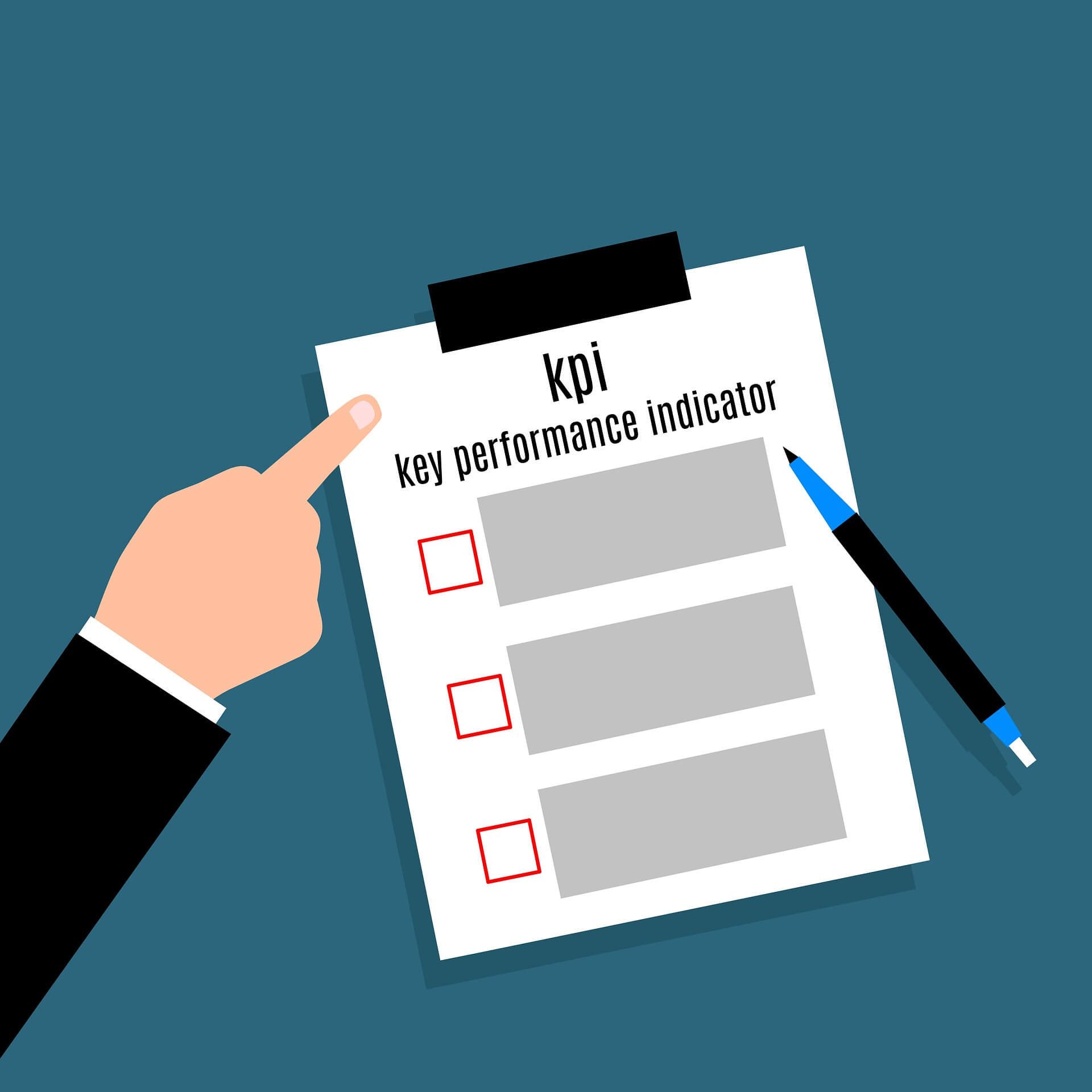KPI or Key Performance Indicator, you’ve probably already heard of them. Your Key Performance Indicators illustrate your company’s efficiency at meeting its objectives and aims. In this blog, we will show you how to select effective KPI’s that match your business goals.
KPI stands for Key Performance Indicators
KPI stands for Key Performance Indicators and is a measurable metric that describes how efficiently a company is reaching its business-related goals. Businesses use KPI’s at various levels to evaluate and tune their ability to meet their objectives.
There are levels of KPIs, you can segment them according to departments. A specific department can have low-level KIPs focusing on the performance and deliverables of that department. Such KPIs, are then used for the high-level dashboards that the executive board can get a holistic overview of the performance of all departments.
How to Identify KPI Metrics?
Identifying the correct Key Performance Indicators is crucial for your business. Monitoring or selecting the wrong KPIs can harm your business.
You can use the following framework for selecting your KPIs:
- What and How?
- What are your desired results/ambitions?
- How will these results/ambitions affect your company?
- How will you measure the process?
- How can you influence the results?
- Who and How?
- Who is responsible for the business result?
- How will you know that you reached the result?
- How often will you measure the desired result?
You can use the above process for each individual KPI that you would like to measure. It will help you identify the most relevant metrics to cover and will also shed light on the ones that are actually irrelevant to your business.
Effective KPI’s
KPI meaning Key Performance Indicators as described above, but what makes KPI’s effective? KPIs are only effective if they are backed up with the correct actions.
Often companies create a wide range of goals that they would like to accomplish and lose focus on how to start, keep track and measure their results while over-looking on other aspects of the business. For example, imagine a sales department that has a focus on sales KPIs. They measure and monitor them daily. Meeting those goals or KPIs does not mean that your business is necessarily successful.
It is important to have a variety of KPIs that reflect your entire business rather than just single departments. Your KPIs have to make sense to your overall business goals and objectives. To do so it will worth your while to look at the SMART Model.
SMART Model
One of the ways you can measure the relevance of your key performance indicators is by using the SMART Model.
SMART Model stands for:
- Specific (simple, sensible, significant)
- Measurable (meaningful, motivating)
- Achievable (attainable)
- Relevant (realistic, reasonable)
- Time-bound (time-limited)
How can you use the SMART Model practically? It is quite straight forward, try answering the following questions:
- Is your goal/objective specific?
- Can you measure the progress towards the goal?
- Is the goal achievable?
- How relevant is the goal for your business?
- What is the time-frame for achieving the goal?
Using this model will allow you to identify relevant KPIs and avoid setting up irrelevant goals and aims.
Selecting Relative KPI’sThere are many examples of what KPIs can be. In the end, they are defined goals or data sets that are used to assess the performance and deliverance of your business. A KPI could be increasing sales or higher return on investments or improving customer satisfaction.
Imagine you have an e-commerce website, where you are selling your products online. For each business goal/objective you would define KPIs to ensure that you are on track. Here is a list of likely KPIs for various goals:
| Business Objective/Goal | KPI |
| Increase next quarter sales by 25% | Daily Sales Website Traffic Conversion Rate |
| Increase annual website traffic by 50% | Traffic Volume Traffic Sources Bounce Rate |
| Increase next month conversions rate by 5% | Conversion Rate Bounce Rate Cost/Conversion Time spent on page |
This is one example from an e-commerce website. Each type of business or company will require different metrics however, the approach and idea are the same. If you are a business owner, you should have a clear set of measurable KPIs to help you be on top of your business and drive the performance up.
Need Help Defining your KPIs
When it comes to successful and effective digital marketing, KPIs are paramount. Without them, it will be almost impossible to assess the success of a strategy or campaign. Click here to get help with setting up and monitoring your KPIs.


